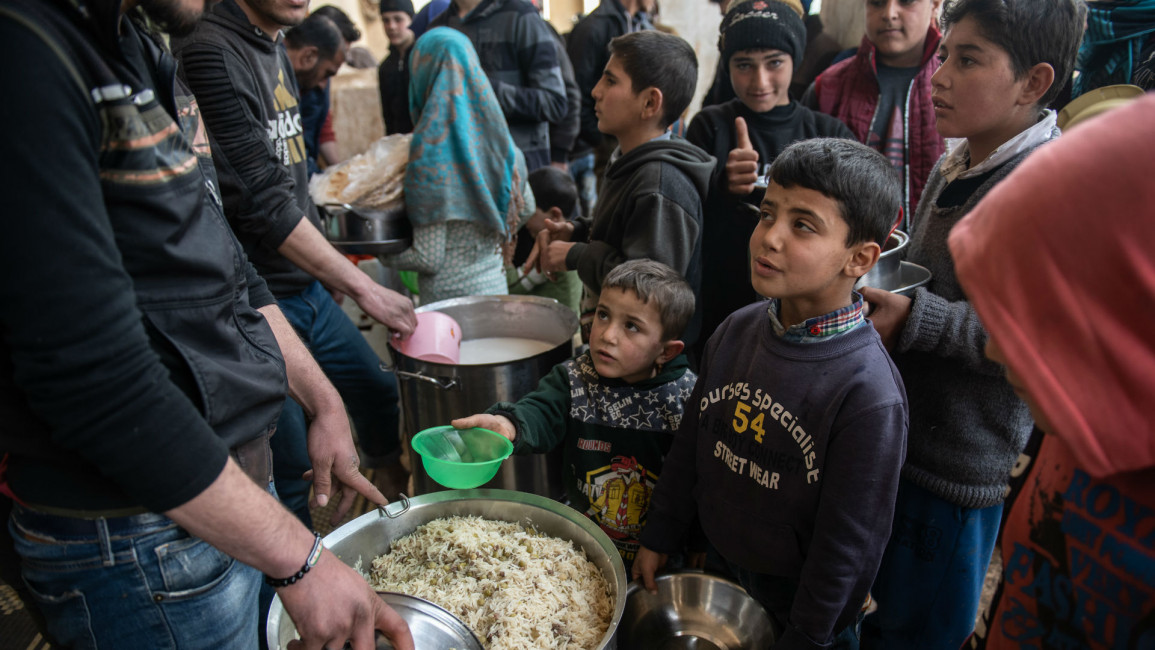Water cuts in northeast Syria intensify coronavirus risk: UNICEF
The Allouk water station in Ras Al-Ain, a border town controlled by Turkey and its Syrian rebel allies, has not pumped water to the Kurdish-held northeast for days due to an interruption the Britain-based Syrian Observatory for Human Rights blames on Turkey.
UNICEF on Monday said the pumping station supplies water to around 460,000 people, including residents of Hassakeh city and the overcrowded Al-Hol camp, which is home to thousands of relatives of Islamic State group fighters.
"The interruption of water supply during the current efforts to curb the spread of the coronavirus disease puts children and families at unacceptable risk," Fran Equiza, the agency's representative in Syria, said in a statement.
"No child should have to live even one day without safe water. Clean water and handwashing save lives. Water and water facilities must not be used for military or political gains - when they do, children are the first and most to suffer," Equiza added.
|
||
The fears come after the Syria regime admitted to its first coronavirus case in the country.
After nine years of a war that has killed at least 500,000 people and ravaged the country's infrastructure, fears are high that a COVID-19 outbreak in the country would have devastating consequences, especially in areas outside regime control.
The rebel-held and densely-populated province of Idlib in northwest Syria, besieged by regime forces and facing severe shortages of medical supplies and facilities, would suffer the most from an outbreak.
With nearly a million Syrians displaced and in crowded and exposed makeshift camps, the conflict rendered hundreds of thousands vulnerable to the coronavirus.
The COVID-19 virus, which was first detected in China's Wuhan in December, has killed more than 14,748 people worldwide, while over 341,561 infections have been confirmed.
As of yet, there are no known treatments for the virus, though more than 99,040 have already recovered from the infection.
Follow us on Facebook, Twitter and Instagram to stay connected



